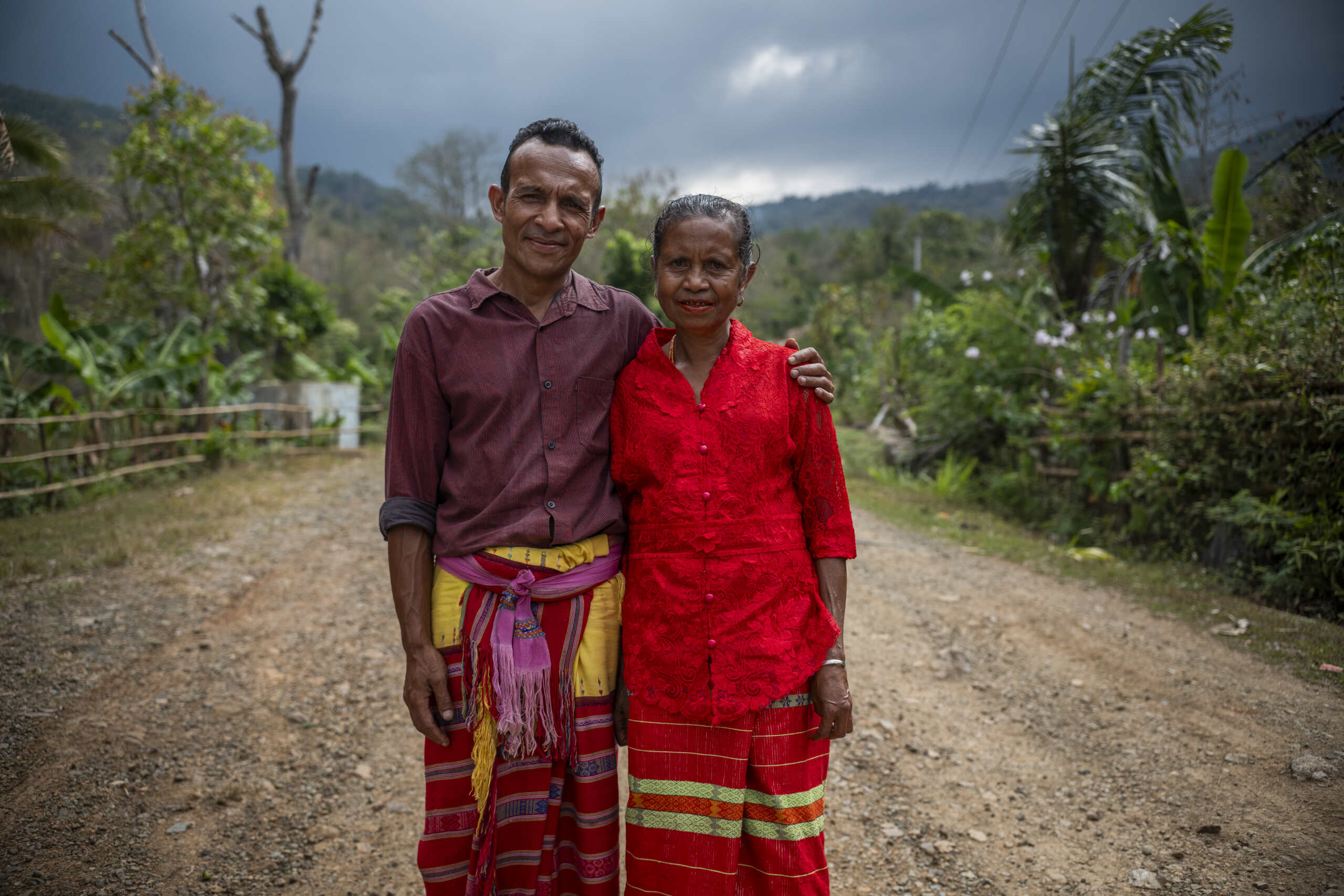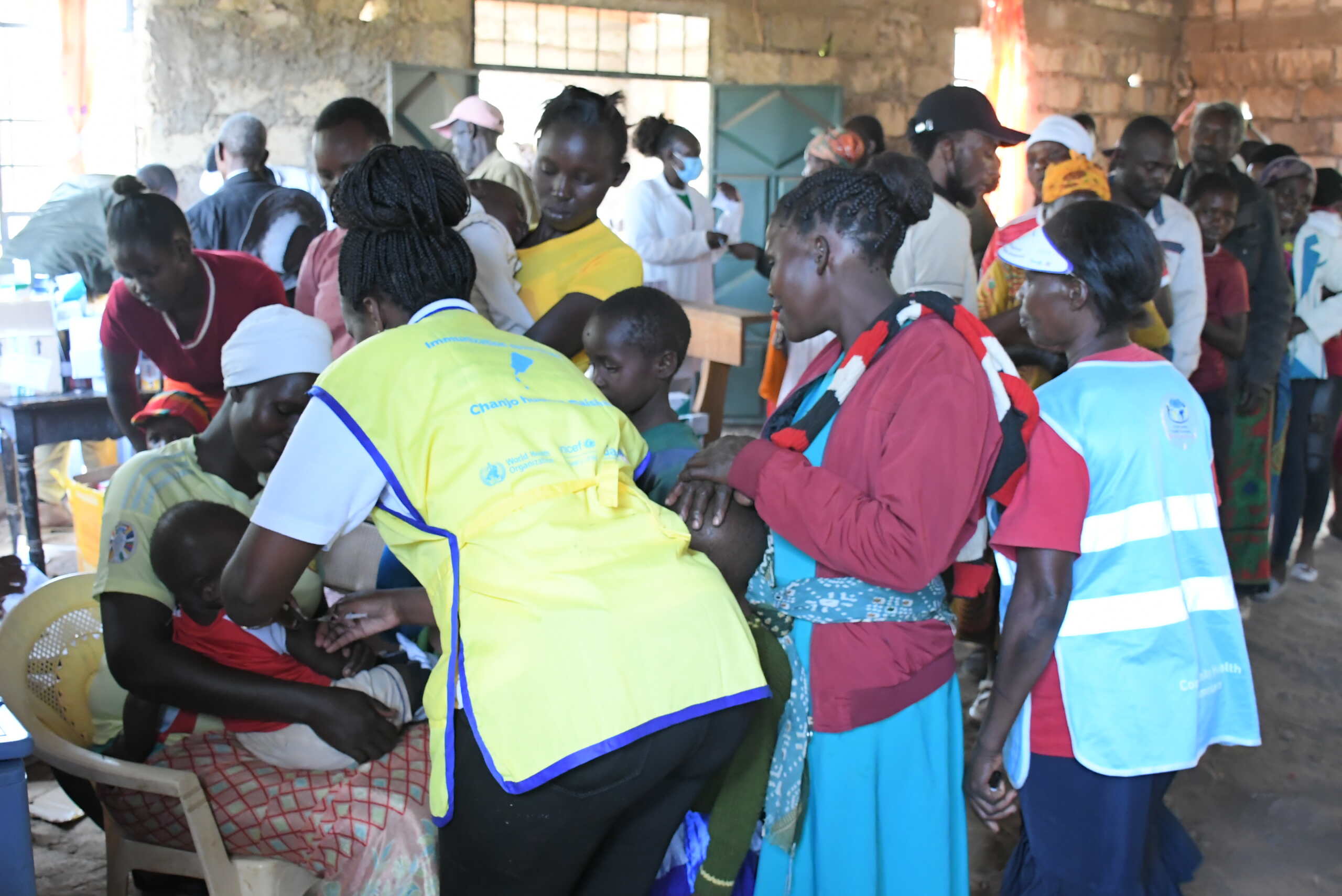Disability and unpaid care work: #BalanceforBetter means doing things differently at home
Stories | February 19, 2024
“I wanted to change the world, but I couldn’t find a babysitter.”
It’s hard enough caring for a family when you have no running water or electricity, and you don’t have access to medicine or social care in any form.
The time and energy that care work takes is a big reason why many women and girls don’t go to school, work in paid employment, socialise or participate in community life or politics.
Imagine, then, what it might be like for a woman with disability living in poverty, or caring for a child with a disability.
CBM Australia recently mapped out some of the care challenges faced by women with disabilities, and families of children with disabilities, in the countries where we work. Our findings showed that:
- Unpaid care work stops women with disabilities from participating in community groups and organisations that represent them – this is particularly true for married women.
- Many mothers of children with disabilities are single mothers, due to the stigma of disability, and have even more unpaid care work responsibilities as a result.
- Our home-based rehabilitation and education programs work best, and avoid increasing work for mothers of children with disabilities, when we encourage fathers as well as mothers to participate.
So what is CBM doing about it?
To celebrate International Women’s Day 2019, we thought we’d share some examples of how our programs help #BalanceforBetter: not in the boardroom or parliament (although that’s important too!) but at home, by:
- Helping dads bond with their children
A CBM partner project in the Philippines has developed parent training programs that help fathers learn about gender-equitable parenting, build their caregiving skills and enrich relationships between them and their children with disabilities.
- Bringing men together to challenge stereotypes, and do more at home
Sometimes there’s a perception amongst men that it’s not ‘manly’ to help at home. In India, a partner project identified local men who already helped more around the house, and helped them to form village father’s groups and mentor younger men in the village.
They share their experience and the benefits of doing more at home. This helps dispel some of those stereotypes about masculinity, and more men are helping out at home as a result.
- Not everyone can run a shop – supporting mothers of children with disabilities differently
In Ghana, CBM’s research with the London School of Hygiene and Tropical Medicine and a local partner found that children with disabilities often lived in single-mother households. Fathers often abandoned the household due to negative family attitudes towards disability. This means that mothers are left to look after their child with a disability by themselves and often don’t have time for much else.
In these cases, it makes more sense to support women to access social protection rather than encourage them to take up work or start businesses that they don’t actually have time for.
- Supporting women to support each other
Being a woman with disability, or mother of a child with disability, can be an extremely isolating experience due to stigma. This means that social support is critical.
In India, Ghana and other projects, CBM supported women, including women with disabilities, to form small village groups so they could share their experiences and learn from each other.
In some cases, they also started small businesses together, and helped look after each other’s children so they all had time to participate and earn a living.
Read more about Disability and unpaid care work.
https://www.cbm.org.au/stories/disability-and-unpaid-care-work-balanceforbetter-means-doing-things-differently-at-home
Related Stories

How CBM is making a difference in Indonesia
For more than 45 years, CBM Global has been working alongside communities in Indonesia to ensure people with disabilities...

Coordinating inclusive health outreach in Meru County
For many households in Meru’s rural and remote areas, basic health services are physically...

Share your advocacy preferences with us
Thank you for helping us to advocate for the one billion people with disability globally. CBM Australia advocate across...
